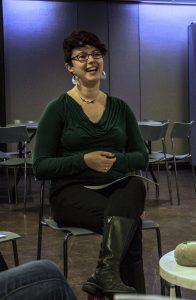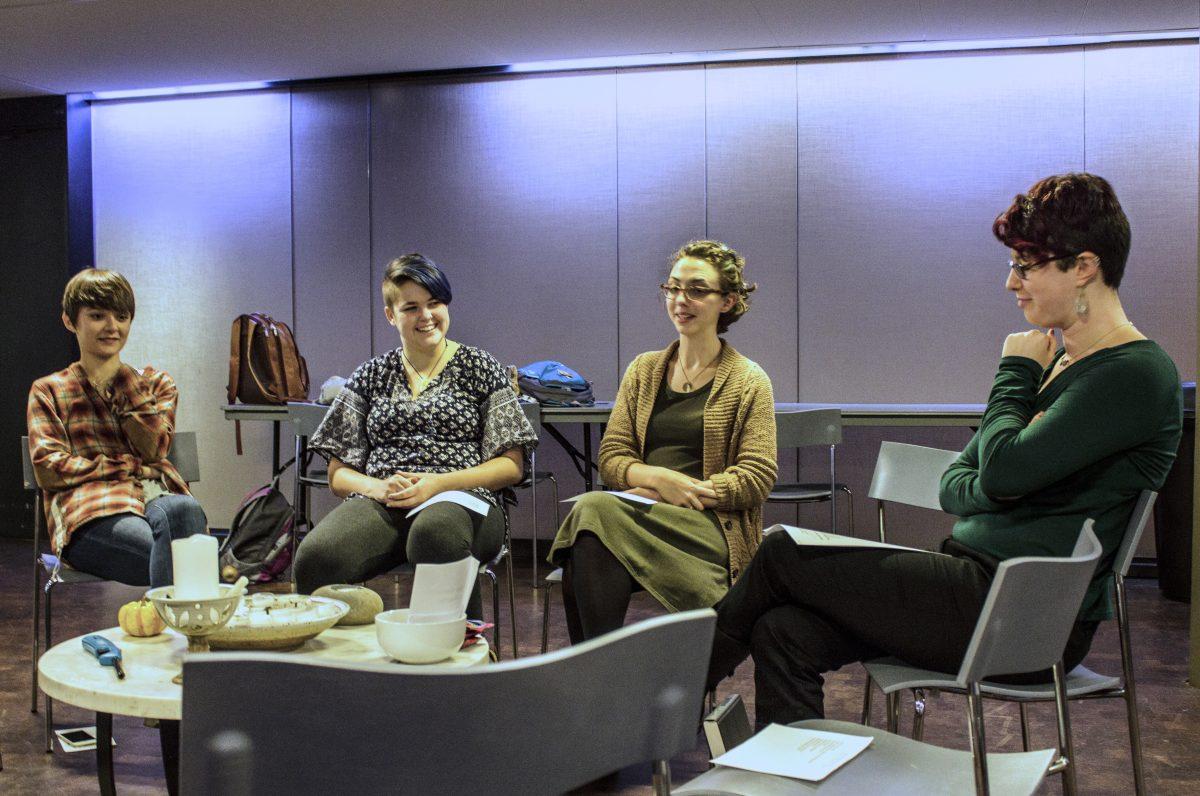This fall marks a new chapter for the Office of Religious and Spiritual Life (ORSL) as it welcomes many new members to its team. In order to handle having a large number of new staff, ORSL has embraced the change and acknowledges the new perspectives that these staff members bring. The change has allowed for deeper conversation and reflection on the college and its traditions.
The new staff includes Tiffany Steinwert, Dean of Religious and Spiritual Life, Emily Jendzejec, Catholic Chaplain and Director of Newman Ministry, Audrey Berkman, Campus Rabbi and Director of Hillel, Anabell DeOliveira, Hillel Office Manager, Joanna Lubkin, Unitarian Universalist Chaplain and Sarah Robbins-Cole, Protestant Chaplain. Dean Steinwert and Rabbi Berkman are full-time employees at the College whereas the other chaplains work part-time. ORSL includes eight chaplains and encompasses five world traditions.
Steinwert, who previously served as dean at Hendricks Chapel at Syracuse University, admires Wellesley students for their dedication, ambition and engagement in and out of the classroom. She is excited to work closely with students and help guide them as they pursue a moral, ethical and spiritual education.
“This education connects the head and heart together and helps fuse together what students are learning in class with who they are and want to become for the sake of the world,” Steinwert explained.

Steinwert is also interested in the roles religion and spirituality play in higher education. Although it has been found that religiosity among college students in the United States is decreasing, spirituality is exponentially increasing. Spirituality is broadly defined as an individual’s search to understand morality and ethics. The existential questions that puzzle and motivate college students such as “What is right,” “What is just,” and “What is the meaning of life,” are the same questions that traditional religions have debated for years.
The University of California, Los Angeles published a seven-year study that looked at the relationship of spirituality and higher education. The study analyzed the surveys of 14,000 student participants nationally. Their findings concluded that students who practiced spiritual activities regularly had higher GPAs and retention rates, reported getting along with others who are different than themselves, were less stressed and had a greater sense of purpose vision.
Moreover, Steinwert stressed how spirituality provides the tools needed to understand others in the changing and complicated world in which we live.
“Spirituality helps foster a citizenry, a new generation of leaders who understand and can manage differences between religious worldviews,” Steinwert remarked.
According to Jendzejec, the tie between spirituality and higher education allows individuals to use faith as a form of self-care.
“We come to college and leave college with our own experiences, family and faith traditions,” Jendzejec said. “I see the faith traditions as a place to explore one’s relationship with G-d and self. How do we see faith and spiritual activities as self-giving?”
Current goals for ORSL include unifying the team so that the office shares a vision and functions as one office versus eight distinct chaplaincies. The office approaches religion and spirituality from a particular and universal viewpoint. For instance, Rabbi Berkman expressed the importance of being a resource for Jewish students on campus.
“I hope to help create and maintain a strong and thriving Jewish community on campus, with multiple ways to connect to Jewish life and learning,” Rabbi Berkman said.
She also noted the importance of engaging and working with the other chaplains to create a common understanding of religious traditions. To this end Rabbi Berkman, Robbins-Cole and Muslim Chaplain Amira Quraishi have started a lunchtime discussion group with students on Mondays about spirituality.
“We read and talk about texts from various religions traditions,” Rabbi Berkman explained. “I am excited to help that group grow and thrive and to present poems and other texts that have had an impact on me from all traditions.”
As this is the new team’s first year, an additional goal is to learn more about the rhythm of campus life and evaluate how their current programs are or are not meeting the needs of students and faculty.
“We want to determine the intersection between the needs of our college campus and the gifts and graces of the ORSL,” Steinwert said. “To discern these moments, we need to understand who we are, what we have to offer, and we need to know the college.”
In order to express their hospitality and increase their visibility on campus, ORSL has instituted a tea at the Houghton Chapel every Thursday from 4 p.m. to 5 p.m. This tea invites students for fellowship and relaxation as there is no agenda planned.
The last goal is to provide students with opportunities to engage in spiritual activities on a regular basis. According to Steinwert, religion and spirituality are habits that need to be practiced. Every weekday at 8 a.m. to 8:20 a.m. a group meditation will be offered in the chapel. Students who participate are able to direct the type of meditation they would like to do.
Steinwert expressed how the overall goal of ORSL is to create a scaffold where the students are able to build and create by being student driven and oriented. The responsibility of the faculty and staff is to support and guide students. Many of the ORSL staff are committed to meeting students and have an open-door policy.
A monthly e-newsletter will be sent to inform students about ORSL’s programs and events. Additionally, ORSL’s online presence is currently being revamped and will in the near future include information about the 18 student-led religious organizations on campus, where students will have easy access to the organization’s contact information and regular meeting times.






